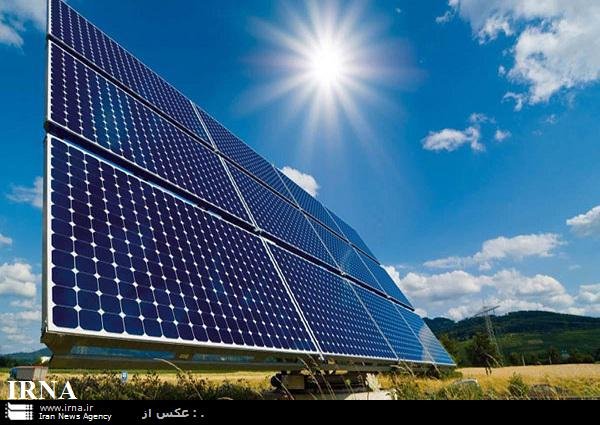The Islamic Republic of Iran has always been a reliable trading partner for other countries, the Europeans in particular and had always tried to live up to its commitments as per its trade deals with the Europeans, even while under US-led sanctions.
Iran-Norway Energy Contract
On Oct 18, Iranian and Norwegian firms sealed a €2-billion contract to produce two gigawatts of solar energy.
The contract was signed by the managing director of Norway's Saga John Eric, the managing director of Energy Amin Company Majid Shahrestani and in the presence of Norwegian envoy to Iran Lars Nordrum.
Based on the contract, the Norwegian side will invest two billion euros to launch and produce solar energy units in Iran.
The contract is to be implemented in three provinces which have areas more exposed to sunlight.
During the first phase, 180 mw of solar energy will be produced.
The first phase of the plan will be implemented in six sites in Razavi Khorasan, Kerman and Yazd Provinces.
In addition to transferring technical knowledge, the Norwegian company will also build a factory to produce the project's equipment in Iran.
Solar Power Plants
Meanwhile, Fars Province Investment Services Center and Austrian Benefit & Solar Company signed a contract worth $100 million to make four solar power plants in Abadeh, Fars Province, south of Iran.
Director General of Economic Affairs and Finance Office Babak Daee said, 'The capacity of the power plants will be 70 megawatts and will be made in Abadeh and Izad-Khast;' both town are located in north of Fars Province.
Daee also said that the agreement includes two 25 and two 10-megawatt plants, adding, 'The four plants will be built and connected to the country's electricity network in seven months.'
Solar Complex
A German-Iranian company started construction of a new solar power plant in Meybod region located at central province of Yazd.
Pasargad Solar Projects Ltd, a German-Iranian Company, in collaboration with Kronos Solar Projects GmbH, international players in large-scale solar energies, announced the launch of the construction of first phase of a new 100 MW solar power plant in Meybod.
'According to Iran's 6th five-year development plan, Iran has had the green-light and the target of generating over 5,000 MW of renewable energies with 20 years power purchase agreement and many other advantages, the 10 MW Solar Complex with an investment of $12 million is a part of our activities in Iran's renewable energy market in line with attracting foreign investments,' Amir Eslamnezhad, Managing director at Parsia Business Development Solutions which is a partner at the project said.
Solar Farm
On Sep. 20, 2017, UK renewable investor Quercus signed a deal worth over half a billion euros to build and operate a 600-megawatt (MW) solar farm in Iran.
The work located in central Iran is expected to take three years, with the project coming online in 100 MW phases every six months, Quercus said of its first project outside Europe.
“As Iran opens for business, we are delighted to be taking a leading role in building the country’s renewable energy infrastructure at such an early stage of its development,” Quercus CEO Diego Biasi said.
The company will be responsible for the construction, development and operation of the plant, for which it will set up a specialist team based in Dubai and Tehran to help deliver the project, including a head of engineering, financial controller, project coordinator, planning manager and procurement staff.
According to Biasi, the project by Iran's Ministry of Energy has attracted enough interest from private and institutional investors, including sovereign funds.
“This is a project of national interest, so we got special support. We had enough investors interested so instead of splitting that across smaller projects which wouldn’t have given us the same relationship with the Ministry, we decided to go for one,” Reuters quoted him as saying.
Under the contract, foreign investors will be treated the same as local ones, with a guarantee that the electricity would be paid for, PressTV wrote.
Quercus prides itself on a portfolio of around 40 renewable energy plants across Europe. Biasi hoped that its first inroads into Iran would lead to more solar projects.
Before Quercus’s announcement, contracts for about 950 MW of renewable energy projects had been signed. They are part of the plan to add 1000 MW of renewable energy to the national grid each year in the next five years but the ultimate goal is to establish a 26,000 MW renewable capacity with $60 billion of investment.
Iran currently has 63 MW of installed solar capacity, chiefly in the cities of Yazd, Kerman, Isfahan and Hamadan. This figure is meager for a country with over 300 sunny days and an average of 2,800 hours of sunshine.
There is an ambitious plan to expand the renewable capacity in the face of an acute air pollution problem in major cities and towns. Iran's overall power capacity stands at 77,000 megawatts, which is mostly generated in thermal power plants using fossil fuel.
